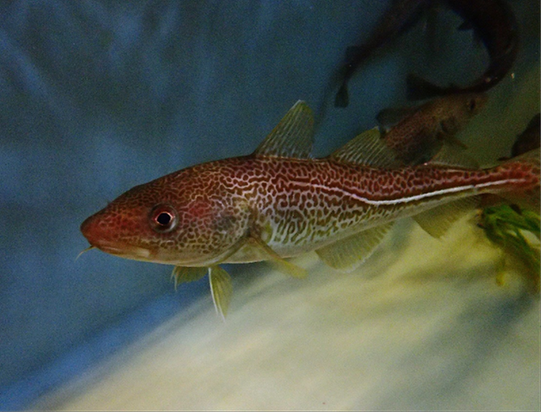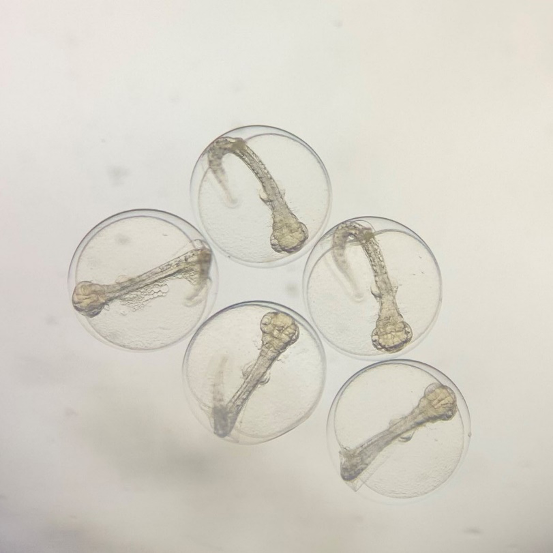ReCod: release of small cod in the Baltic sea
The Baltic Sea is a unique but vulnerable environment with a small exchange of water, varying salinity, and large areas with dead zones. Cod is one of the Baltic Sea’s most important fish species, from an ecological, and previously economic perspective. Today, the Baltic Sea cod stocks are facing an acute situation due to decades of overfishing and unsustainable management.

Atlantic cod (Gadus morhua). Photo: Lars Vallin
The Atlantic cod (Gadus morhua) is the main top fish predator in the pelagic of the Baltic sea and of huge ecological and economic value. However, the situation of the eastern cod stock - occurring in the Baltic proper east of Bornholm - is dire. Due to overfishing, poor growth of individual fish and recruitment failure the stock is at its all-time low and since 2019 commercial cod fishery in the eastern and northern Baltic sea has been closed.
As a marine species cod needs water of moderate salinity for reproduction, which in the Baltic sea is available only occurs in relatively high depths. Cod reproduction in the Baltic is strongly limited by the hydrographic conditions: after spawning the eggs float in the water column and low salinity and lack of oxygen in the deep water in most of the Baltic proper strongly decreases egg survival. Currently, the Bornholm basin is the main spawning site for the eastern Baltic cod as the hypoxic conditions prevent successful spawning in the former spawning grounds of Gotland and Gdansk basins.
Project ReCod is a collaborative project between Uppsala university and the foundation BalticWaters aiming to develop methodology for strengthening the Baltic cod populations by releasing hatchery-reared yolk-sac larvae. By focusing on the yolk-stage stage our aim is to help the cod populations through the survival bottleneck of egg stage. If the method proves successful, large-scale releases of yolk-sac larvae can provide an effective method to improve cod stocks.
The project is located at the research station Ar in northern Gotland with facilities for maintaining the parental stocks and rearing of eggs. Releases of yolk-sac larvae have been conducted since summer 2022 in three locations, especially in the bay Tvären near Nyköping. Research within the project focuses on developing the methodology for the releases of the yolk-sac larvae as well as on genetic and phenotypic variation within the eastern Baltic cod stock. Anssi Laurila is the scientific leader of ReCod.
More information on the project can be found here.

Atlantic cod embyros. Photo: Madeleine Kullenbo
